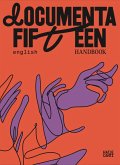Where Humans and Spirits Meet (eBook, PDF)
The Politics of Rituals and Identified Spirits in Zanzibar


Alle Infos zum eBook verschenken

Where Humans and Spirits Meet (eBook, PDF)
The Politics of Rituals and Identified Spirits in Zanzibar
- Format: PDF
- Merkliste
- Auf die Merkliste
- Bewerten Bewerten
- Teilen
- Produkt teilen
- Produkterinnerung
- Produkterinnerung

Hier können Sie sich einloggen

Bitte loggen Sie sich zunächst in Ihr Kundenkonto ein oder registrieren Sie sich bei bücher.de, um das eBook-Abo tolino select nutzen zu können.
Zanzibar, an island off the East African coast, with its Muslim and Swahili population, offers rich material for this study of identity, religion, and multiculturalism. This book focuses on the phenomenon of spirit possession in Zanzibar Town and the relationships created between humans and spirits; it provides a way to apprehend how society is constituted and conceived and, thus, discusses Zanzibari understandings of what it means to be human.
- Geräte: PC
- mit Kopierschutz
- eBook Hilfe
- Größe: 1.04MB
- FamilySharing(5)
![Mensch macht Natur / Humans Make Nature (eBook, PDF) Mensch macht Natur / Humans Make Nature (eBook, PDF)]() Mensch macht Natur / Humans Make Nature (eBook, PDF)29,95 €
Mensch macht Natur / Humans Make Nature (eBook, PDF)29,95 €![Performing Early Christian Literature (eBook, PDF) Performing Early Christian Literature (eBook, PDF)]() Kelly IversonPerforming Early Christian Literature (eBook, PDF)58,95 €
Kelly IversonPerforming Early Christian Literature (eBook, PDF)58,95 €![Antike Körpergeschichte (eBook, PDF) Antike Körpergeschichte (eBook, PDF)]() Lukas ThommenAntike Körpergeschichte (eBook, PDF)4,99 €
Lukas ThommenAntike Körpergeschichte (eBook, PDF)4,99 €![Kürschners Graphiker-Handbuch (eBook, PDF) Kürschners Graphiker-Handbuch (eBook, PDF)]() Kürschners Graphiker-Handbuch (eBook, PDF)0,00 €
Kürschners Graphiker-Handbuch (eBook, PDF)0,00 €![Walter Moers' Zamonien-Romane (eBook, PDF) Walter Moers' Zamonien-Romane (eBook, PDF)]() Walter Moers' Zamonien-Romane (eBook, PDF)55,00 €
Walter Moers' Zamonien-Romane (eBook, PDF)55,00 €![Rhythmus und Performance (eBook, PDF) Rhythmus und Performance (eBook, PDF)]() Dierk ZaiserRhythmus und Performance (eBook, PDF)12,99 €
Dierk ZaiserRhythmus und Performance (eBook, PDF)12,99 €![documenta fifteen Handbook (eBook, PDF) documenta fifteen Handbook (eBook, PDF)]() documenta fifteen Handbook (eBook, PDF)9,99 €
documenta fifteen Handbook (eBook, PDF)9,99 €-
-
-
Dieser Download kann aus rechtlichen Gründen nur mit Rechnungsadresse in A, B, BG, CY, CZ, D, DK, EW, E, FIN, F, GR, HR, H, IRL, I, LT, L, LR, M, NL, PL, P, R, S, SLO, SK ausgeliefert werden.
- Produktdetails
- Verlag: Berghahn Books
- Seitenzahl: 184
- Erscheinungstermin: 30. Juni 2008
- Englisch
- ISBN-13: 9780857450562
- Artikelnr.: 39600142
- Verlag: Berghahn Books
- Seitenzahl: 184
- Erscheinungstermin: 30. Juni 2008
- Englisch
- ISBN-13: 9780857450562
- Artikelnr.: 39600142
- Herstellerkennzeichnung Die Herstellerinformationen sind derzeit nicht verfügbar.
Preface and Acknowledgements
Chapter 1. Introduction
* Considering perspectives on spirit possession
* The fieldwork: people, engagement and context
* The fieldwork: ritual participation
* Performance, meaning and reflexivity
* Ritual, communication and enactment
* Knowledge, experience and forms of negotiation
* The book
Chapter 2. Introduction to Zanzibar: the place, its politics and
organization
* A view of the past and the present
* Identity, social privileges and political reorganization
* A plural society
* Gender, distinctions and effects in everyday and ritual life
* Gender, ritual participation and knowledge
Chapter 3. Spirits, possession and personhood
* The position of spirits
* Spirits are beings with a worldly existence
* Spirit possession and practices
* Personhood, notions of strength and self-control
* Experiencing spirits
Chapter 4. Makabila, people and spirits
* Articulation of differences and the problem of identity
* Identification of a spirit
* The demands of spirits belonging to different makabila
* The world of spirits and human beings
Chapter 5. Human concerns, spirits and recreation of relationships
* How the spirits reveal their presence in the human world
* Communication between humans and spirits
* The ritual group and the ritual framework
* Ngoma ya sheitani: a celebration and a cure
Chapter 6. Between self and other: body and mind
* Ngoma ya ruhani
* States of body and states of mind
* A bodily experience of spirits
* Losing oneself to the spirit
* Altered states of body, altered states of mind
Chapter 7. Gender: relations, markers and sexuality
* Gender and complementarity
* Concealment and disclosure
* Acts of disclosure and moral ambiguity
* Enactment and perceptions of the body
* Strict categories in a flexible universe
* Gender images and human practices
Chapter 8. Women, men and gendered spirits
* A ngoma ya kibuki ritual
* Matters of affection, pride and self-control
* Presentation, representation and excess
* Comedy, parody and the ways of humans and spirits
* Body, aesthetics, and gender images
* On reflections and acts of transgression
Chapter 9. Conclusion: social identities and dramatization of the other
* An aesthetic moving together
* Improvisation, play and the dramatization of a life-world
* Reflections on embodiment and modes of knowing
Glossary
Bibliography
Index
Preface and Acknowledgements
Chapter 1. Introduction
* Considering perspectives on spirit possession
* The fieldwork: people, engagement and context
* The fieldwork: ritual participation
* Performance, meaning and reflexivity
* Ritual, communication and enactment
* Knowledge, experience and forms of negotiation
* The book
Chapter 2. Introduction to Zanzibar: the place, its politics and
organization
* A view of the past and the present
* Identity, social privileges and political reorganization
* A plural society
* Gender, distinctions and effects in everyday and ritual life
* Gender, ritual participation and knowledge
Chapter 3. Spirits, possession and personhood
* The position of spirits
* Spirits are beings with a worldly existence
* Spirit possession and practices
* Personhood, notions of strength and self-control
* Experiencing spirits
Chapter 4. Makabila, people and spirits
* Articulation of differences and the problem of identity
* Identification of a spirit
* The demands of spirits belonging to different makabila
* The world of spirits and human beings
Chapter 5. Human concerns, spirits and recreation of relationships
* How the spirits reveal their presence in the human world
* Communication between humans and spirits
* The ritual group and the ritual framework
* Ngoma ya sheitani: a celebration and a cure
Chapter 6. Between self and other: body and mind
* Ngoma ya ruhani
* States of body and states of mind
* A bodily experience of spirits
* Losing oneself to the spirit
* Altered states of body, altered states of mind
Chapter 7. Gender: relations, markers and sexuality
* Gender and complementarity
* Concealment and disclosure
* Acts of disclosure and moral ambiguity
* Enactment and perceptions of the body
* Strict categories in a flexible universe
* Gender images and human practices
Chapter 8. Women, men and gendered spirits
* A ngoma ya kibuki ritual
* Matters of affection, pride and self-control
* Presentation, representation and excess
* Comedy, parody and the ways of humans and spirits
* Body, aesthetics, and gender images
* On reflections and acts of transgression
Chapter 9. Conclusion: social identities and dramatization of the other
* An aesthetic moving together
* Improvisation, play and the dramatization of a life-world
* Reflections on embodiment and modes of knowing
Glossary
Bibliography
Index







